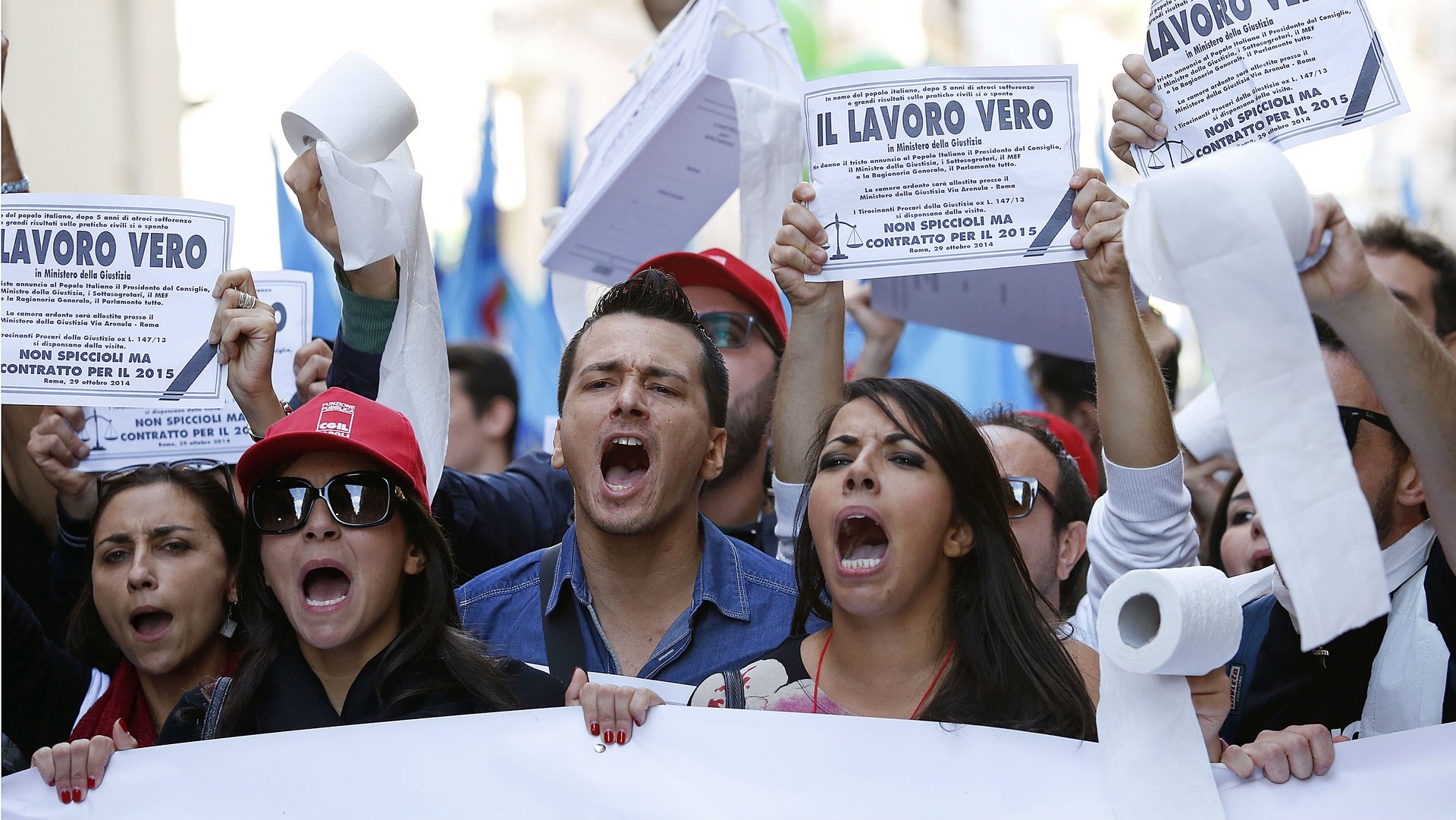Employment is rising in Italy—but millennials are still screwed
Italy’s millennials, nicknamed the “lost generation” for the extent to which they have been impacted by the country’s long recession, continue to face stubbornly high levels of unemployment compared to their fellow citizens.


Italy’s millennials, nicknamed the “lost generation” for the extent to which they have been impacted by the country’s long recession, continue to face stubbornly high levels of unemployment compared to their fellow citizens.
Italy is making a slow recovery from a double-dip recession that began in the mid 2000s. In 2015, the country saw moderate gains in its economy: GDP grew 0.7% in 2015 (not far behind the European average of 0.9%), and unemployment, arguably the biggest economic issue facing Italy, has finally showed signs of decreasing from its peak of 12.9% in 2014.
Unemployment in Italy in the first three quarters of 2015 averaged 12.1%. And data released by the Italian Institute for Statistics (ISTAT) (Jan. 7) show a rate of 11.3% in November (link in Italian), a decline of 0.2 percentage points from October.
Italians aged 25-34 years old, however, are facing a less than rosy recovery, with 2015 unemployment levels averaging 17.8% in the first three quarters:
Between 2007 and 2014, Italians aged 25 to 34 experienced a 10 percentage point drop in employment levels between 2008 and 2014, compared to 3 percentage points for the general population. Their level of employment remained more or less stagnant in 2015, according to data from the first three quarters, compared to a 0.5% gain for the general population.
Despite the moderate improvement of Italy’s economy, it looks like la dolce vita is not something the younger generation can aspire to yet.